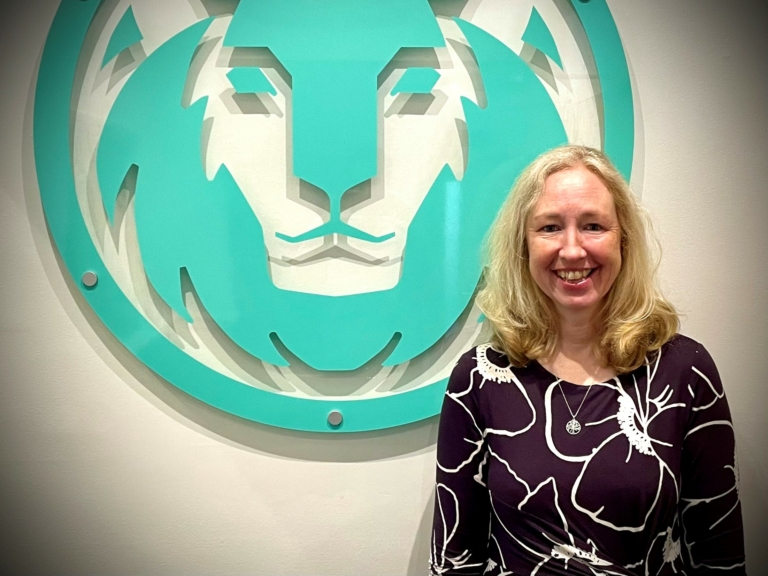Are SMEs sitting comfortably in the recovery driving seat?

There are 1.1million SMEs in the UK, and the Government plainly sees them as a powerful workforce to help drive economic recovery. This Roundtable hosted by The Business Magazine together with the sponsors and co-compilers of our SME 100 – Santander Corporate and Commercial Banking, law firm Field Seymour Parkes, business advisers and accountants Haines Watts and SME growth advisers VitalSix – set out to find the answers …
Are the feet of owner-managers poised over accelerator or brake pedals?
”We are being told we are set fair for a sustained low-inflation recovery,” stated David Murray, “but there are concerns that this is fuelled by a fall in the amount that households save – down from 9% in 2009 to 5% – so is this recovery underpinned mainly by consumer spending?
“Or, as the Government wants, is the recovery now founded on increasing private business investment and employment, and will this in turn drive the increased productivity that will help sustain our economic growth?”
Murray added that a recent survey by GE Capital had reported SMEs being set to create 660,000 jobs in the next year. “This is good news, but is that the confident recruitment view of this Roundtable?”
Sean Taylor had no hesitation. “Absolutely. We are hiring, taking on people at the moment, but it is a very big regional challenge. We struggle to gain the right types of people for our business – typically STEM (Science, Technology, Engineering and Maths) graduates.
“The region is great for us as a business, and we promote the clustering of like-minded businesses in this ‘Tech Valley Europe’, but we do have to compete against the very strong gravitational pull of London with its high wages and vibrant lifestyle.
“We have about 40 places currently open for graduates and we can’t fill them fast enough. It’s absolutely vital that we attract talent into this region.”
Alex Minchin’s company is under four years old but has grown to nine staff, with five being taken on last year. “Recruitment is arguably easier in the digital sector because it is a boom area. People want to get into it.” Even so, he admitted that his company tended to look for graduates in subjects such as history that found it more difficult to gain employment. “We find that they can apply their skills to our industry very well. Classic subjects areas (such as history) tend to have fewer employment opportunities, and this creates the perfect scenario for a small business like ours, and for a graduate looking to get into work.”
Dr Susan Matos added that graduates from less directly related degree subjects such as history could quite often bring fresh skills and a different perspective to a business, valuable for corporate innovation and differentiation.
Moving offices to central Oxford to be closer to likely clients had proved a two-edged sword, Minchin revealed. “Office space has proved so expensive – £16.50 per sq ft outside Oxford, £45 per sq ft inside – that I can’t take on people as I want to.
"Ironically, the ‘gravitational pull’ of regional cities such as Oxford, Reading, Southampton could be a factor for SMEs based more rurally. “So, recruiting people is not an issue, but keeping them can be.”
Simon MacDowall’s company is broadening its international operations and is recruiting in the UK (100 employees) and India, where it already has an office with 45 employees. “We have 10 positions open in Woking and 25 in India. We are finding it much easier to recruit in India.”
Fortunately, while London is an obvious attraction for graduates, Woking is close enough for new employees to commute out to SFW from their London homes.
“Generally, experienced recruits have worked for smaller organizations in Berkshire, Hampshire or Surrey and want to advance their careers into team leadership and management levels or to work with us within central government. SFW is attracting a good number of people returning from a career break or seeking a better work/life balance and, for example, have the experience but don’t want to commute.”
Barry Anns said du Pré Group, based in Newbury, planned to grow significantly in the next three years, requiring recruitment in sales and operations. “Typically we look for sales sector experience and don’t find recruiting there a problem, but we have struggled recently getting technical resource. Although we are offering what we believe are the right levels of salary, it’s difficult to get the right people.”
Murray queried if Newbury-based Vodafone was a significant competitor for IT and telecoms recruits. Anns replied: “Vodafone doesn’t really affect us. It tends to operate at a different global level. But, it’s an extremely competitive industry. There are probably 300-400 value-added resellers like us in the region.”
du Pré Group’s software business Double First has increased from £800,000 to £2.5 million turnover in five years and has grown internationally through that period. It planned to recruit in the UK and in its emerging Far East and Middle Eastern markets and has already established a wholly-owned branch in Singapore but recognised it would face challenges with foreign work and employment regulations.
Got a graduate? Beware the corporate poachers
With the Thames Valley home to many major world-class companies, competition for top quality recruitment is high.
Matos sets up Knowledge Transfer Partnerships (KTP), collaborative projects between the University of Reading and industry employing graduates to working inside SMEs to help them develop their businesses. She is currently working with colleagues from universities across the country to raise the profile of KTP to students and graduates, with a focus on SMEs.
“Basically, there is a crisis in recruiting good graduates into a lot of areas. It’s also increasingly difficult to recruit from overseas because of the changes in regulations.
“We are also hearing, particularly with engineering, computing or programming graduates, that large companies are offering their existing graduates bonuses to poach their student friends from other businesses. Those recruited often also get a golden handshake.”
Accordingly, smaller companies, looking to grow through graduate intake were finding it more difficult to gain and retain suitable recruits. “Nationally, we need to get current and new graduates to view SMEs in a more positive light as a good place to work.”
Roundtable members pointed out that corporates were often seen as providing secure jobs, but that was not a certainty in today’s world, and a graduate’s opportunity to influence decision-making and gain wide experience with an SME was likely to be greater than within a corporate.
Taylor wondered if graduate recruitment might be easier for SMEs if they didn’t have to buy expensive exhibition space at university recruitment fairs. Maybe the space could be provided free, with a payment later if the SME took on a graduate, he suggested. “It’s not just the money but the time and resource taken out of their small business.”
Universities might also help by imbuing graduate interviewees with a more traditional view towards ‘a good day’s work for a good rate of pay.’ “I often experience that ‘getting old moment’ when interviewing, because graduates don’t seem to have the same work culture as me.”
Matos said the attraction of large corporates covers a number of factors for graduates. “It’s not just the attraction of London salaries and lifestyle. Taking that jump from university into a company can be a major step. So, if graduates can get into that world of work through a recruitment programme along with other graduates that is a great transitional support. We need to address this problem because it is getting harder to attract talent.”
“It’s another learning process for graduates – exposing them to the businessworld so when they leave university looking for their first job they are thinking of SMEs as well as the big company names.”
Taylor agreed that getting more students ready for the pressures of work through transitional programmes, placements and internships would be very beneficial.
It’s not just students, SMEs need to learn too
“It’s an education piece: getting students thinking about working with an SME, and getting more SMEs thinking about taking on graduates.” said Susan Elliott.
From her experience working with small businesses at VitalSix it was clear that SMEs and graduates faced similar challenges of starting afresh, and both needed guidance.
“Ordinarily we might focus on the owners and managers of an SME but perhaps there are different business needs in other parts of the employment base.”
Barry Potter pointed out: “There was a time when SMEs would take on graduates who would end up working long hours but today, flexible benefit packages, training programmes, career progression structures, mentoring – all of these things are needed to attract and retain the right people.”
Greater understanding might be possible through joint networking activities and peer group communication, suggested Elliott, who promised to raise the graduate recruitment and retention problems with the new Thames Valley Berkshire LEP Business Growth Hub that VitalSix is delivering for the LEP.
Internships and work placements
Speaking from company experience, Minchin said internships provided “an incredible route to recruitment for small businesses.
“It’s safe and fair because over three months the intern gets to be more employable and the SME gets a good level of work at an acceptable rate. We also get to see their skills develop and see if they could suit our business. After three months there’s no contractual obligation and either side can make its move.”
Nash mentioned that Santander provides graduate internship opportunities through its Breakthrough scheme. SMEs state their ‘entrepreneurial internship’ requirements and Santander will help businesses find appropriate graduate interns from over 70 UK universities. The bank also funds half the graduate’s salary with the SME.
Matos agreed that more SMEs should take up that offer, but suggested managing and mentoring the graduate was often seen as a major commitment. “The rewards for an SME can be fantastic but it does tie-up resource.
“Universities are increasingly looking at the employability of graduates and internships and work placements are becoming much more important. And, that’s where SMEs can help and benefit.”
A job shouldn’t be just about the salary
Salaries outside London are often lower, so managing recruitment expectations was essential, said solicitor Penny Garden.
Her firm had recruited a number of new solicitors in the past few months and was still recruiting. “We want the right quality of people and interesting people are coming out of London. They have gained experience, done the City lifestyle, and feel they now have something to offer within a good regional firm.”
Thames Valley work-life quality, plus wider career experience, opportunities and greater client involvement was often attractive to potential recruits.
“Some of our current trainees have also compared their training with friends at firms in London, and consider that working for us they get better experience and more responsibility.”
The increasing use of paralegals (unqualified legal assistants) was one way of attracting young graduates to come to regional firms, Garden added. “Basically, we can interview them on the job for a training contract and they can experience what it is actually like to work for us. They know how the firm works and we have seen their abilities.”
Nevertheless if staff decide they want to experiencethe ‘London lifestyle’ there can be little a regional firm can do to persuade younger staff members otherwise.
Murray revealed recruitment data that the Reading area had seen a 50% increase in construction placements, 37% in IT. “Are there enough good people out there to fill those jobs?”
MacDowall said his company had recently lost a staff member to a Reading-based Tier 1 service provider. “We couldn’t remain competitive and profitable in the public sector market that we serve if we offered the same salary. We have churn most years, and accept it’s the nature of career progress, but we do stress to interviewees the high level of autonomy and wide range of important work that they would get with us far exceeds what they could expect with the large systems integrators. We’ve had a number of instances of staff joining us because they wanted more challenging assignments and got bored at Tier 1 companies.”
Minchin accepted SMEs often could not match large marketing agency salaries, but felt the working environment could be crucial in attracting recruits. His firm offset its lower salaries by providing flexible working and home-working, a weekly personal training session for staff, and £100 for each new recruit to put their stamp on the office. “My aim is to engage them in our company culture as soon as possible, so the wage difference doesn’t really matter.”
Taylor’s company operates in a very competitive high-margin sector, so pays high salaries. “It is critical for us to get the right talent, but such players know they are good and can command a good salary. Getting the right work environment and lifestyle message across is important though.”
Growth and the difficult art of delegation
Acceptance of change, quick decision-making, and rapid workforce upskilling could all be advantages for SMEs over larger companies, the Roundtable believed, but a key ‘growing pain’ of entrepreneurial founders was often lack of delegation – “that ‘letting go’ of the business”, as Elliott termed it
“To grow, they can’t afford not to delegate, and they must ensure that everyone understands the overall business aims.”
Anns became MD of his company two years ago after working his way up from the shopfloor. “This resonates with me. Our founder has now left the business, and I need to change the culture, get us into a growth phase, and devolve responsibilities. That can be hugely challenging if an owner has put his stamp on a company.”
Potter: “The person who has the skill to start a business does not necessarily have the skill to develop the business. Equally, the old adage that a business dies if it stands still, isn’t necessarily true if an owner doesn’t want it to."
Taylor: “SMEs are often small for a reason. Often they are constrained by their management teams. There has to be a vision and it may not be for growth. Not everyone will want to go on the same growth journey, and those that do will need to hand parts of the business over to employees who may not run it as well as they do.”
Are funding issues still holding back SMEs?
Minchin: “There are a lot of opportunities to get financing, particularly with crowd-funding coming along in a big way.” Choosing the right funding option was the important factor and knowing where to find more information without being steered towards a product that happens to be flavour of the month.
Potter thought too many SMEs focused on day-to-day operations and didn’t produce detailed strategic business plans. Accordingly, sometimes when they sought funding their business proposals were not presented adequately with information on income streams and profit projections. “But, there are a host of funding options available whether that be bank finance, invoice discounting, leasing, equity finance etc, etc ..”
Banker Ian Nash accepted that “the funding market has shifted in terms of bank parameters, driven by what happened eight years ago. For Santander, it is now all about fuelling our customers’ ambition and helping them achieve their business plans through a range of different financial solutions. Within my perspective – business new-starts to £50m-plus turnover companies – I can now signpost businesses towards the right type of funding whether that be bank debt, the Business Growth Hubs of local LEPs, a VC house or a crowd-funder.
“We have been a consistent supporter of businesses in the UK, with lending over the past four years growing by an average of 20% per annum, and we take pride in our dedicated relationship-banking approach. The tide has changed and we are seeing more and more businesses approaching us to get a fresh opinion on their financial strategy going forward.”
Elliott said a core part of her VitalSix work with businesses was on preparation for investment. While a detailed business plan was essential, businesses needed to realise that growth often came from a mix of funding and financial phasing. “We see too many pre-revenue plans which say ‘I need £1m of investment.’ We don’t want to put the dampers on ambition, but it’s unlikely an early stage SME will get £1m in one tranche from one source more likely are phased funding rounds.”
M&A and funding activity is increasing . . .
Garden said a lot of deals were now being done, mainly by cash-rich companies and those supported by high-net-worth individuals or shareholders. “There is definitely an appetite to add bolt-ons to businesses in order to develop markets or improve growth with a view to exiting as a bigger company in 3-5 years time.”
The challenge of M&A today was not so much financial as successfully coping with change management such as merging business cultures and computer systems.
“In the past six to 12 months there has been a big pick-up in our banking instructions, acting for both companies or banks. Our VC work, pretty much non-existent a year ago, is also very busy now. Companies are getting money in to develop products or investing in new market opportunities through additional staff and resources.” The VC funding route is often attractive to companies as it can bring with it specialist advice and contacts, Garden added.
. . . along with the risk of ‘boom and bust’?
Taylor feared that cash-rich companies and easy cash might create a market ‘bubble’. One warning recently was the tech-share market volatility following Facebook’s stunning $19 billion valuation of its startup acquisition Whatsapp, with just 55 staff and $20m turnover last year.
“There is pent-up demand for growth out there. Some investors have been sitting on their money and haven’t had good areas to invest in. In the rush not to miss the next wave they are perhaps now not being as rigorous as they should be.”
Available funding was also a concern. “There are some fairly lax VC people out there and some of their growth capital multiples are startling – up to 20 times last year’s revenue – yet we have been astounded when companies have taken on such funding.”
“My worry, and I saw it in the dot-com era, is that these businesses will simply go out into the market and burn their cash.”
Garden agreed: “Speaking to some of our VC and PE funding contacts, there are some investors willing to pay extravagant multiples not just in the technology sector, across all industries and the key concern is not to be tempted into over-paying for good assets.”
Taylor: “The banks are in an invidious position today and have to be prudent. Some businesses have had poor financial advice in the past but generally banks are now doing all that they should be doing.”
Minchin pointed out that British companies often produced better products than their foreign rivals, but in USA, for example, US competitors were more likely to win the race to market because they had more access to VC funding. He knew of one British company considering moving to the US to gain funding and keep pace with the competition.
Elliott agreed that technically superior British products could lose out without "the wraparound of funding, marketing and sales support. There is a different culture within the US investment community”.
Growth: international, local or self-funded?
Local funding for SMEs is available through the Thames Valley Berkshire LEP, Elliott pointed out. The LEP’s Funding Escalator has over £7m, both for debt or equity-match funding, for suitable local business models. There is also new grant money coming through the Business Growth Hub, another key LEP funded initiative.
Taylor said his company was relatively cash-rich but was considering external funding “to prevent getting left behind in the boom area that is ‘the cloud’, which will mature out with a number of big players.” The objective is to grow the business to 20 times its current size within five years.
“We’ve had steady organic growth over 21 years, but we’ve spotted an entrepreneurial opportunity. We can afford to spend our own millions, but not tens of millions.”
London-based US companies offering significant growth capital had been “knocking at our door, and we’re chatting to them. It’s pretty nerve-wracking, but we have a good clear business plan”.
Nash reported good local uptake on Santander’s Breakthrough Fund, a £200m mezzanine interest-only debt fund created as a growth solution for sub-£25m turnover SMEs. “Last year we saw a significant increase in our support for local businesses with lending facilities and this alone has created 223 jobs in the region. That momentum has continued into this year, which shows there are businesses locally looking to expand.”
Elliott pointed out that growth did not always necessitate taking on external funding. A profitable company could grow by self-investment supported by good strategic planning, strong management, efficient productivity and skilled operational teams. Appropriate funding to fuel growth is what’s important.
OK, it’s time to pay up
Murray queried if payment terms were still a problem for SMEs. ‘They certainly are’ came the Roundtable reply.
Late or extended terms of payment, particularly by large corporates, were crippling SME cashflows and often preventing plans for growth.
Anns felt the corporates were being heavy-handed: “They just say: We’ll do it our way, if you don’t like it, then don’t have our business.”“It is pretty poor practice," said Taylor, suggesting the Government should address the problem as a matter of economic necessity.
Minchin revealed that his average outstanding debt on invoiced work had been 76 days. “Lack of cashflow was stopping us from growing, I had to employ someone to chase the debtors, but we couldn’t take on extra income-earners.” In January, he took the bold move of demanding all his customers paid by direct debit. Now average payment is just over 30 days, and the company “is spending more time doing something that is useful.”
Nash mentioned Santander had launched a new trade portal that helps businesses identify where the best importing and exporting opportunities are for their particular products and services. It helps company owners identify where to sell; how to sell and, critically, provides the contacts of specific companies they can sell to. It included a new financial product assisting payment to international suppliers within five days.”
Potter highlighted that the HMRC had been generous with its Time to Pay Scheme during the recession, but now was not so forgiving, particularly if a company had used it recently.
Business planning is so vital
Murray reported research indicating that some SMEs lose 20% extra profit by not having proper business plans.
MacDowall said a business plan covering all areas, implemented by a strong management team, was vital. Recruitment, for example, needed to be structured and signed-off 6-12 months in advance, with five-year forecasts. “Otherwise, it could become reactive and we wouldn’t have the staff to service the contracts our salesmen gain. Clients won’t wait while we recruit.
“Our annual business plan is reviewed monthly and agreed with the senior management team quarterly. Things change.”
Taylor: “Everyone is busy, usually reactive dealing with day-to-day matters involving customers, but it is incredibly valuable to step back regularly and see where you are going. That rigour is essential. You need business direction and a plan to get there. Just treat your business as if you have external funders to satisfy.”
Elliott said the business plan didn’t need to be “a tome of 50 pages with appendices” but SME owner-managers did need to visualise their personal objectives. “It can be a one-page plan, as long as it puts your business in perspective relative to your critical pinch-points, customers, markets, products or services, priorities and aims over the next few years.” A business plan is a written way of expressing an entrepreneurial thought process, she added.
Taylor added that a one-page business plan actually gets read, but “we also have quarterly reviews with our colleagues to disseminate and enthuse that mission across our whole team.”
Potter: “It is also about actually putting a date in your diary and giving yourself time to think about future plans. Otherwise it may not happen.”
Minchin admitted: “I love business planning but I dislike wordy business plans.” For him, keeping the business on course was largely about getting the right management information at the right time and constantly reviewing where the company is in line with its goals. “It’s an ongoing process because the world is changing so fast that you just can’t plan that far ahead.”
Where does SME work come from?
With business pace so fast, Minchin felt many SMEs gained work by being quickest to react to opportunities. “There is a lot of demand for content in our digital world and we support inhouse teams who know what they want, but don’t have time to deliver on their strategic aims.” The Internet world has no geographic boundaries and Zest Digital has just gained its first international client, publicising safaris in Kenya.
Opportunities are global, Taylor agreed, but the recession and ongoing technological change were key drivers. “People want to talk to you if you can bring down their costs.” Back in the early 1990s he had grasped the Internet opportunity, and now by becoming a niche cloud services provider, his businesses had a similar opportunity.
He also noted that market gestation periods were becoming shorter, and consumer expectations more critical for providers and suppliers.
Anns’ company provides specialist software to independent schools. “We offer unique products and add value for clients.” With the UK market well served, the growth opportunity was now in “oil-based and other new economies trying to tap into knowledge and service-based growth through adoption of international education systems including the UK.” Anns estimated that in three years the du Pré Group’s software activities would flip from 60:40 in favour of UK, to 40:60.
He accepted that du Pré should have sought more help from UKTI earlier. “Previously, we would target key events, get on a plane, turn up, look confident, and learn,” although this strategy has propelled the company from zero exports to 40% in six years.
Nash mentioned that Santander supported SMEs through international advice, trade missions and business ‘master-classes’.
MacDowall felt SFW’s opportunities still lay in central government, with the introduction of digital services. SMEs can get government work by becoming pre-qualified as suppliers, he advised. “There is a relatively high opportunity cost associated with this as procurement pre-qualification can take a lot of time and effort but SFW has been successful in this area and the cost is more than justified by business wins.”
Taylor agreed, stating that his pre-qualified company was “starting to get some nibbles”, but had the time-consuming task of monitoring 77 online portals to potential government work. However, the CBI was making progress in its lobbying of the Government to meet its target of 25% SME suppliers, he pointed out.
Taylor: “It is getting better. Even among large corporates, there is a very strong appetite to be dealing with SMEs. It is a big tick in the box for them.”
To compete, Elliott said SMEs needed to focus on quality. “Be really good at what you do and play to your strengths.”
Garden advised SMEs to differentiate themselves through skill and service. “Our firm is not the cheapest nor most expensive of lawyers but we pride ourselves on our abilities and quality of service, and being nearby and locally known can be a definite advantage.”
Remember, we are the heart of Europe’s Silicon Valley
Taylor always promotes the Thames Valley region to his international clients by saying his company is based in the heart of Europe’s ‘Silicon Valley’. “It’s a big driver for business. Perhaps we should have signs on the M4 saying “You are now entering the Thames Valley – Europe’s ‘Silicon Valley’.
He applauded strategic work by the Thames Valley Berkshire LEP in promoting the region, lobbying to improve its infrastructure, housebuilding and warehousing. “We mustn’t forget that we already have a lot of high-value knowledge industries in this region.”
Participants
Barry Anns: Group MD – du Pré Group, IT, telecoms and software
Susan Elliott: Managing director – VitalSix
Penelope Garden:Partner – Field Seymour Parkes
Simon MacDowall:COO – SFW, agile software application services
Dr Susan Matos: Head of knowledge transfer programmes, University of Reading
Alex Minchin: Managing director – Zest Digital, digital marketing
Ian Nash: Business development director Thames Valley – Santander
Barry Potter: Partner – Haines Watts
Sean Taylor: Managing director - Content Guru and Redwood Technologies, IT software and ‘cloud’ communications
David Murray: Managing editor and publisher of The Business Magazine, chaired the discussion















